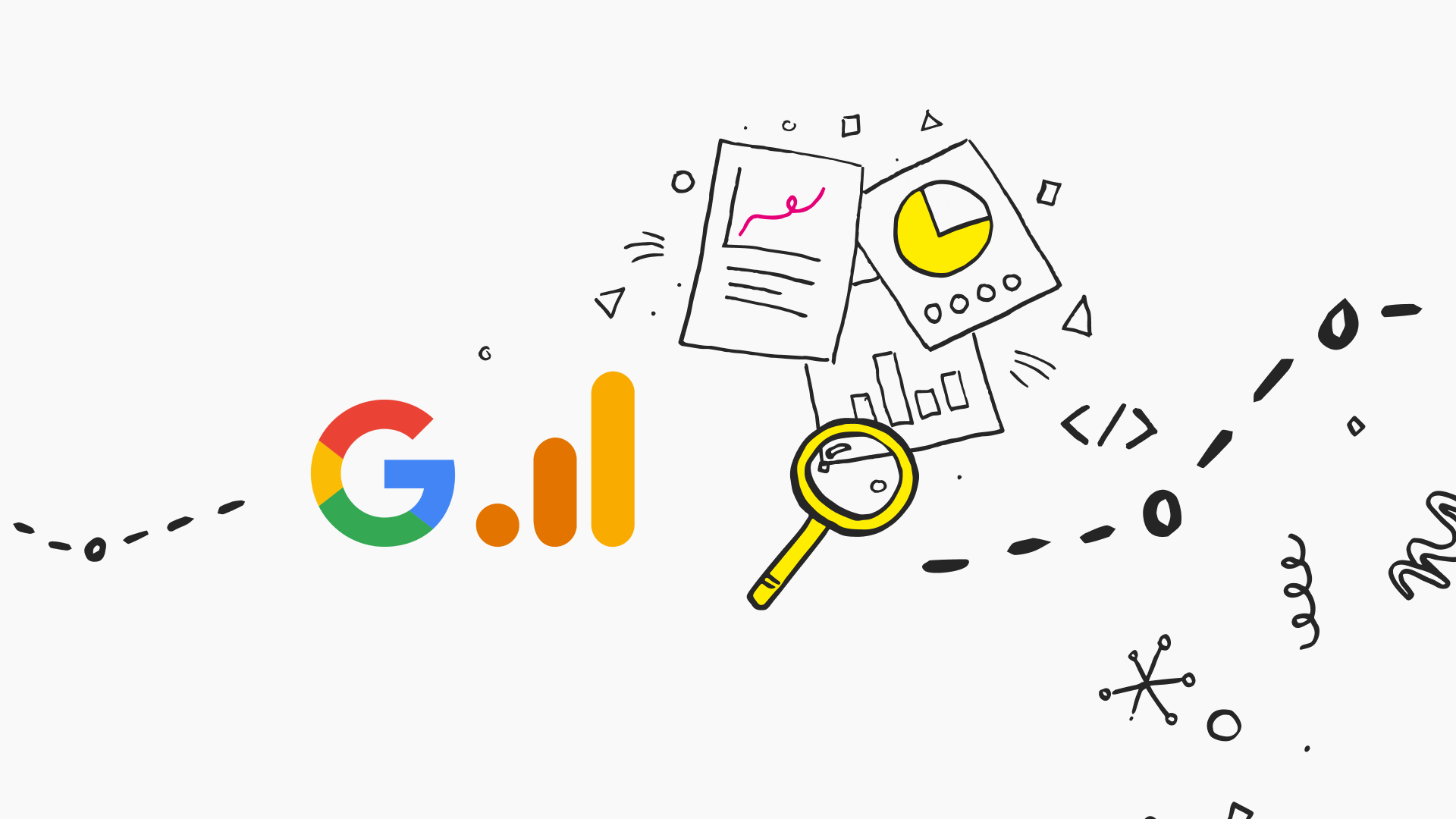
SEOs often overlook the wealth of information provided by the quantitative data from Google Analytics. When assessing the success of new content, SEOs should consider engagement and conversion metrics, which help them understand the value of each piece of website content, beyond just its keyword ranking.
Google Analytics 4 provides Exploration Reports to help you see how users find content on your website. These reports show behaviour and event flow, giving you valuable insights.
Google tracks how users interact with your content as part of its algorithm. If they quickly leave your site and go back to search results, it’s a bad sign. This can harm your overall ranking ability the page experience update checks how users interact with your website to see if it is easy to use and engaging. The more engaged users are the higher the potential for your site to rank.
Big data refers to extremely large and complex sets of data that are beyond the capabilities of traditional data processing software. It involves handling large amounts of information, typically measured in terabytes or petabytes. This amount of data exceeds the capabilities of regular databases or data management tools.
Big data also operates at remarkable velocity generating and collecting data, at an exceptionally rapid pace. This real-time or near-real-time data can originate from a myriad of sources, including sensors and social media posts.
Big data also consists of various types of data. These types include structured data, which refers to databases and spreadsheets. Additionally, unstructured data is also part of big data, which includes text documents and social media posts. Another type of data is semi-structured data, which encompasses XML and JSON files.
How to use SEO and data analytics together
SEO is important to regularly run content audits, to understand the ranking performance of your blogs. It’s normal to include data like views, users and conversions in your audit to assess content performance.
By utilising Google Analytics 4 and combining it with other SEO tools and resources, you can gain valuable insights into your website’s performance, identify areas for improvement, and make data-driven decisions to enhance your SEO strategy.
Leveraging data analytics for SEO content audits
When it comes to improving your website’s visibility and overall performance in search engine rankings, conducting regular SEO content audits is a vital practice. While various tools and methodologies are available to perform these audits, integrating Google Analytics data into your analysis offers numerous benefits that can significantly enhance the effectiveness of your SEO efforts.
- Comprehensive Data Insights: Google Analytics provides a wealth of data related to user behaviour, website traffic and content performance. Leveraging this data allows you to gain a comprehensive view of how your audience interacts with your website. You can track metrics like pageviews, bounce rates, session durations, and conversion rates. This breadth of information enables you to make data-driven decisions when evaluating the effectiveness of your content.
- Audience Segmentation: One of the strengths of Google Analytics lies in its ability to segment data. You can isolate specific audience groups based on demographics, geography, device usage, and more. When conducting an SEO content audit, segmenting your audience data helps you tailor your content optimisation strategies to cater to different user preferences and behaviours. This customised approach can lead to improved engagement and conversion rates.
- Identify High-Performing Content: Google Analytics helps you identify which pages on your website are performing exceptionally well. By focusing on high-performing content, you can replicate strategies that have proven successful. This includes identifying top-performing keywords and content themes that resonate with your audience, allowing you to create more of the content that drives traffic and conversions.
- Pinpoint Failing Content: On the flip side, Google Analytics highlights pages that underperform in terms of traffic, engagement, or conversions. These insights are invaluable for identifying areas that need improvement. You can uncover low-performing keywords, pages with high bounce rates, or those with low session durations. Addressing these issues can lead to better SEO outcomes.
- Goal Tracking and Conversion Analysis: Google Analytics enables you to set up conversion goals and track specific user actions. This is essential for measuring the effectiveness of your content in driving desired outcomes, such as form submissions, e-commerce transactions, or newsletter sign-ups. With goal tracking, you can identify which content contributes most to your conversions and optimise accordingly.
- Real-Time Monitoring: In addition to historical data, Google Analytics provides real-time monitoring of website activity. This feature allows you to stay updated on your content’s immediate impact and make rapid adjustments when necessary. For example, you can observe the performance of freshly published content or track the response to changes made during your SEO audit.
Integrating Google Analytics data into your SEO content audits offers a multitude of benefits. It empowers you with a deep understanding of user behaviour, enables audience segmentation, guides you in identifying both high-performing and failing content, and facilitates goal tracking and real-time monitoring. By leveraging these insights, you can refine your SEO strategy, improve user engagement, and ultimately enhance your website’s performance in search engine rankings.
How to use big data to influence your SEO strategy
Combining Google Analytics data with keyword research, Google Search Console, CRM (Customer Relationship Management), social media, and other data through data warehouses like BigQuery can be a powerful way to enhance your SEO (Search Engine Optimisation) strategy. This data integration allows you to gain deeper insights into user behaviour, search performance, and customer interactions, ultimately helping you make data-driven decisions to improve your website’s SEO performance.

- Enhanced Decision-Making: By integrating data from Google Analytics, keyword research, Google Search Console, CRM, and social media, you gain a holistic view of your online presence. This enables more informed decisions for your SEO strategy.
- Deeper Insights into User Behaviour: Consolidating data sources allows you to understand user behaviour on your website comprehensively. You can see which keywords, channels, or pages are most effective in driving valuable traffic and conversions.
- Improved Keyword Targeting: Combining keyword research data with historical performance metrics helps you identify high-potential keywords that align with your content strategy. This leads to more effective targeting and content creation.
- Optimised Content Strategy: Insights from integrated data sources enable you to refine your content strategy. You can focus on creating or optimising content that resonates with your target audience and aligns with their search intent.
- Better ROI on SEO Efforts: By analysing data from CRM systems, you can evaluate the quality of leads generated through SEO. This helps in optimising your SEO efforts to attract high-value prospects and improve your ROI.
- Synergistic Marketing Efforts: Integrating social media data with SEO data reveals how social media engagement impacts website traffic and conversions. This synergy helps in aligning your social media and SEO strategies for maximum impact.
- Efficient Resource Allocation: Informed decision-making allows you to allocate resources effectively. You can focus on the channels, keywords, and content that are delivering the best results, saving time and resources.
- Continuous Improvement: Regular monitoring and analysis of integrated data sources enable ongoing optimisation of your SEO strategy. You can adapt to changing trends and user behaviour to stay competitive.
- Maximised Online Presence: By leveraging a data-driven approach, you can maximize your online presence and increase the visibility of your website in search results, ultimately leading to more organic traffic and conversions.
In summary, integrating data from various sources through a data warehouse empowers you with a wealth of insights, leading to more effective SEO strategies, better decision-making, and ultimately, improved online performance and ROI.
How we can help
In the fast-paced and ever-evolving world of digital marketing, staying ahead of the curve is not just an option; it’s a necessity. Big data analytics has emerged as a game-changer, particularly when it comes to SEO. As we’ve explored in this blog post, the benefits are vast and compelling.
By harnessing the power of data warehouses like BigQuery to combine insights from Google Analytics, keyword research, Google Search Console, CRM systems, social media, and more, you open the door to a new era of SEO strategy. It’s a journey that promises:
- Deeper understanding of user behaviour.
- Enhanced decision-making through data-driven insights.
- Optimised content strategy and keyword targeting.
- Improved ROI on your SEO efforts.
- The synergy between various marketing channels.
- Efficient resource allocation.
- Continuous adaptation and improvement.
- Maximised online presence and organic traffic.
At this juncture, you might be eager to unlock the full potential of big data analytics for your SEO strategy, and we’re here to help you on that journey. If you have questions, need guidance, or simply want to explore how to integrate big data analytics into your SEO strategy, don’t hesitate to reach out to our expert team.
Your SEO success story starts with a simple conversation. Together, we can harness the power of big data to propel your online presence to new heights. Reach out today, and let’s embark on this data-driven adventure together!
We drive commercial value for our clients by creating experiences that engage and delight the people they touch.
Email us:
hello@nomensa.com
Call us:
+44 (0) 117 929 7333




